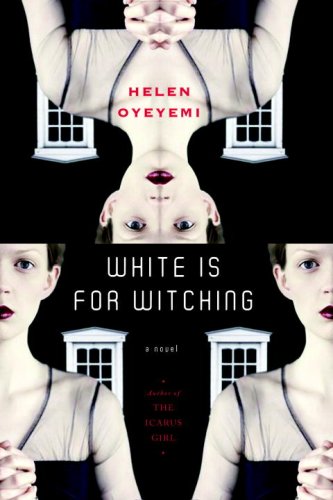
 White Is for Witching by Helen Oyeyemi
White Is for Witching by Helen Oyeyemi
White Is for Witching blends gothic horror, racial politics, and the older, bloodier sort of fairy tales into a deeply unsettling novel. The story opens with a passage intentionally reminiscent of “Snow White,” describing the mysterious imprisonment? disappearance? death? of the heroine, Miranda Silver. From there, we move backward in time, to the point when the events leading to Miranda’s fate began.
The story is told from several points of view, all of them seeing events from different perspectives, all of them possibly unreliable narrators. Miranda herself, her brother Eliot, her lover Ore, and her ancestral home all have their own versions to tell as the plot unfolds.
The house looms as the center of Miranda’s tale. Menacing and xenophobic, it desires control over the people it considers its own, and means harm toward those it sees as foreign. The house and its ghosts want to make Miranda a vessel for their hatred. Miranda struggles against the house’s domination, a battle that threatens to destroy her mental health and possibly her life.
Helen
Oyeyemi’s prose is haunting and poetic. I hesitate to use the word “beautiful,” as that might give a false impression of “pleasantness.” Oyeyemi depicts nightmares, not pretty dreams. She has a knack for describing ordinary things in a way that makes them suddenly horrific, and when she describes horrific things, she does it in a subtle, oblique way that feels like you’re looking at something so unspeakable that you can only look with your peripheral vision:
The University Library is a mouth shut tight, each tooth a book, each book growing over, under and behind the other. The writing desks are placed in front of bookshelves, some of them between bookshelves so that whoever is sitting at the desk gets a feeling of something dusty, intangible and unspeakably powerful, something like God, watching them through tiny gaps in the shelves. People kept trooping past the desk I’d chosen, in search of books and free seats, and within half an hour I’d stopped looking up when someone passed. I wanted to read about the soucouyant. I wanted to write about her, I still do. What do I want to write? Just a book, probably, another tooth for the UL’s mouth.
Something that explores the meaning of the old woman whose only interaction with other people was consumption. The soucouyant who is not content with her self. She is a double danger — there is the danger of meeting her, and the danger of becoming her.
White Is for Witching works as a novel of the supernatural, and it also works as an allegory. I hesitate to even mention the A-word, for fear of driving away readers who’ve been burned by preachy authors. Helen Oyeyemi doesn’t preach, however. There’s a message, but it never overshadows the plot and characters. It’s just that you can see an extra dimension to the story if you look through the lens of allegory.



If the state of the arts puzzles you, and you wonder why so many novels are "retellings" and formulaic rework,…
I picked my copy up last week and I can't wait to finish my current book and get started! I…
Gentlemen, I concur! (Forgive me for jumping into your convo)
The cover is amazing. I love how the graphic novel (and the review!) hewed close to the theme of "good…
I've thought about picking that one up. The artwork looks perfect.